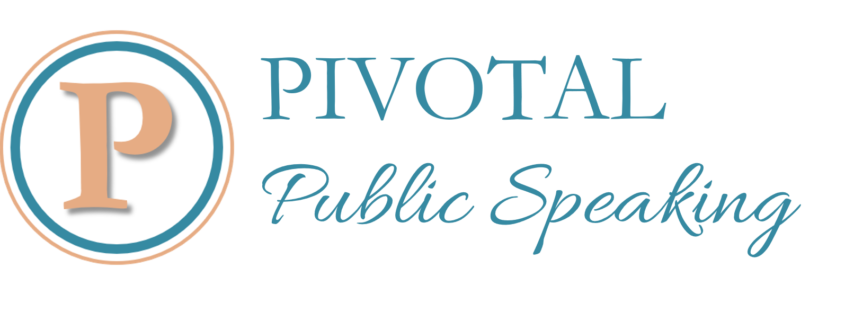The ways you use language and words in your speeches and presentations can make or break your chances of success.
This is because success in public speaking depends on how well your audience understands your message and responds to it. They won’t understand if you lose their attention, because they will stop listening. They won’t understand if you distract them from the message. And they certainly won’t understand if they cannot understand the language you use.
So let’s look at 8 ways to get and to keep – that understanding and attention – using words
1. Avoid losing the audience. Be sparing with dates, figures and statistics. These are all very powerful ways to support your points, but overuse them and they just become boring, and your audience will turn off. If data is absolutely necessary, use your slides to create a visual rendition of it. Tell stories about it. Find some way to relate it to your audience – percentages of people like them, for example, or of their country.
2. Don’t forget to credit your sources for all of these as you would for your quotes. Support your credibility!
3. You can also avoid boring your audience by varying the pitch and the volume and pace of your words. Use pause for drama. Speak quickly to communicate your energy and enthusiasm, and then use a slower rate for emphasis. You can also deliberately vary the structure of your sentences. A single word can have huge impact used on its own, particularly if it comes after a wordier segment. All of these are keeping your audience hooked.
4. Remember the rule of three. There is a creative vibration in the number three – and you can create impact using it. So you might list in threes – “Faith, Hope and Charity” is an example of a list of three. Or you might repeat a particular phrase structure three times, for example “You could try words, you could try deeds, or you could always try good food.” Use the technique sparingly, though, or it will outlast its welcome, and be more of a distraction then a support.
5. We all have short attention spans. This is exacerbated in these days of communication delivered in truncated, rapid-fire bytes. So you have to organise your presentations so that you do something frequently to keep attention. Change your delivery style. Support your words with a new visual. Challenge with an activity for audience involvement. Tell a story. Whatever techniques you use, introduce them often and vary them. Each will have its own impact, but make sure that impact supports your chosen image and message.
6. Use humour if you can, create vibrant word pictures and tell stories to reinforce concepts. These will allow you to avoid presenting a continuous flow of theory which will kill audience attention and it will give vividness to your material that will make the message last in the minds of your audience – powerful impact.
7. Consider your audience when you are choosing the words that you use –the vocabulary. Speak to them in a language they understand. Look at your technical terms, and any jargon that they may not understand. Use examples, stories, quotes and other support material that has relevance to their lives and their interests. You will keep their attention and their interest.
8. Finally, remember this is a speech or spoken presentation. Spoken language is very different from the written. Writing tends to use far longer, more convoluted sentences, which often use voices that we would not use in speech. Try reading out the sentence you just read and see how awkward it sounds when it is spoken. Again, it is a case of speaking to the audience in their language – the language they expect to hear spoken. So if you need to write your presentation first, take the time to read it out loud, and then say those same ideas as if you were telling someone face to face. If you absolutely have to have a written draft, then re-write using what you said aloud. Make sure, though, that you can make eye contact.
A speech or presentation is, after all, a conversation, despite the constraints of expectations and formality, and in any conversation, we need to make ourselves worth hearing. The audience is the determinant of what we say if we want to be successful, to maintain their interest, don’t bore them and speak to them in their own language and you will have a fruitful “conversation.”
© Bronwyn Ritchie If you want to include this article in your publication, please do, but please include the following information with it:
Bronwyn Ritchie is a professional librarian, writer, award-winning speaker and trainer. She is a certified corporate trainer and speech contest judge with POWERtalk, a certified World Class Speaking coach, and has had 30 years’ experience speaking to audiences and training in public speaking. In just 6 months time, you could be well on the way to being admired, rehired as a speaker, with the 30 speaking tips. Click here for 30 speaking tips for FREE. Join now or go to http://www.30speakingtips.com








